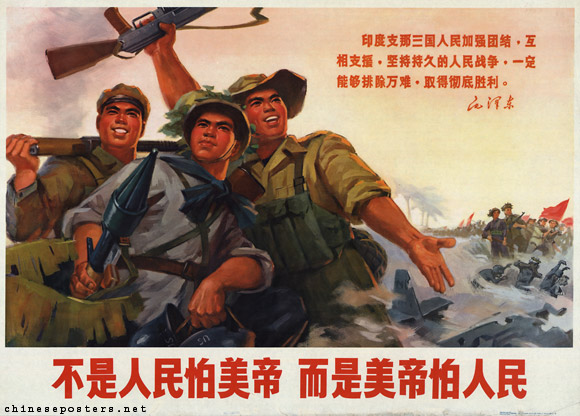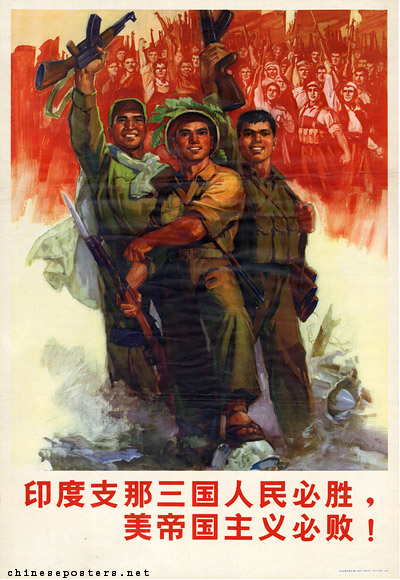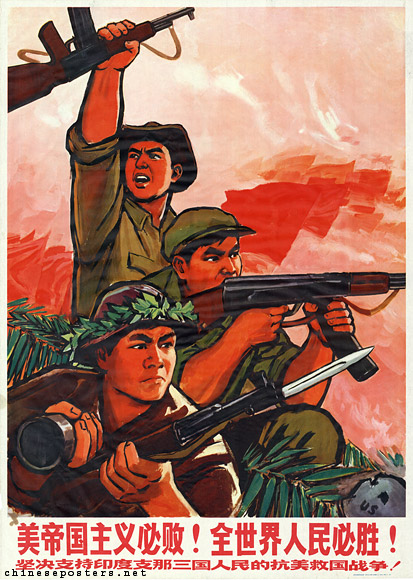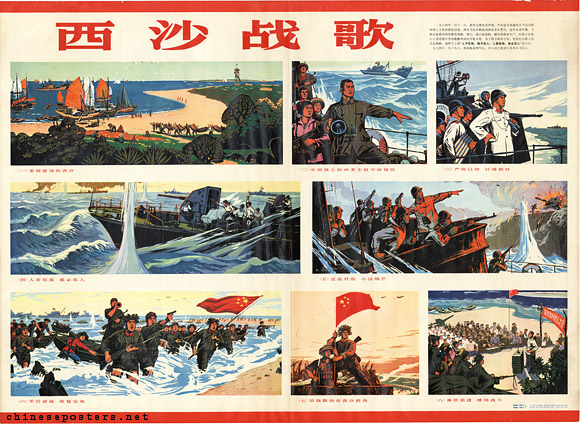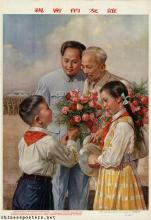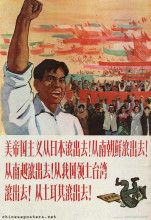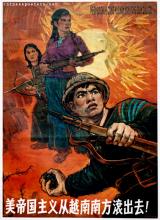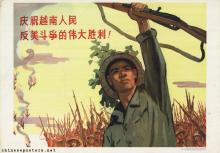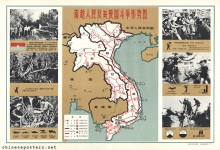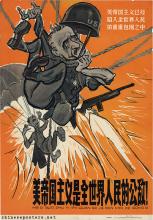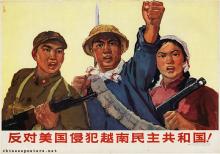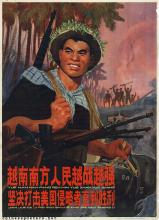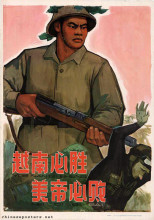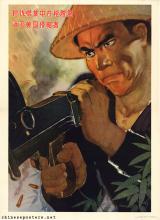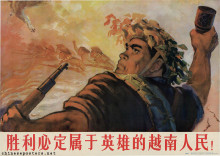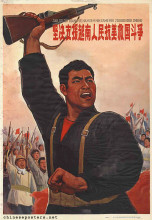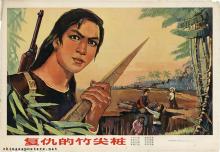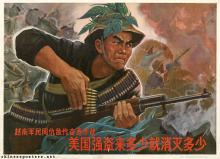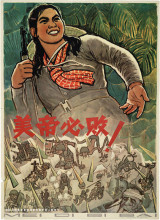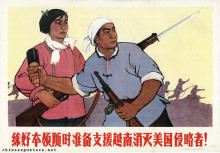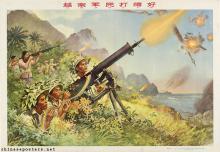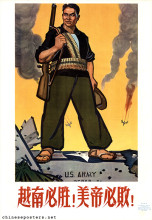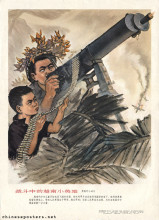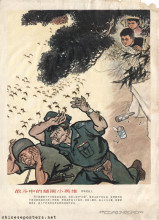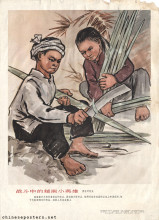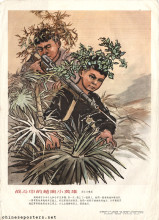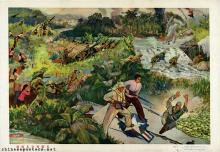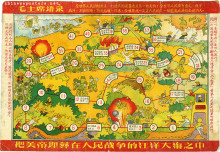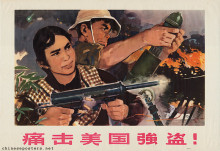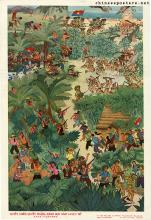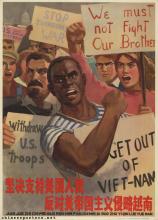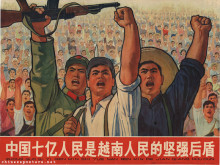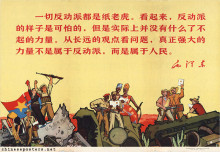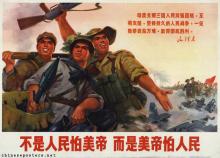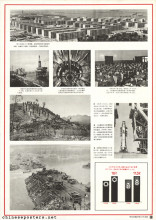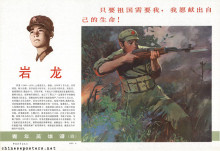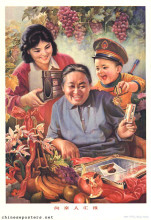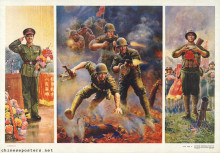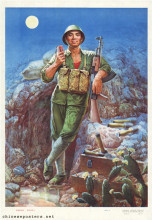The North Vietnamese brought the struggle against white imperialism very close to China’s borders. The Chinese had rendered support to the Vietnamese during their Anti-French War and in concluding the Geneva Accords in 1954. Afterwards, they were involved closely in the developments in Southeast Asia. As a result, the Vietnamese could function as subjects of propaganda. The Chinese were taken very much with the idea that the Vietnamese should emulate the Chinese historical example for revolutionary struggle.
The support resulted in massive military assistance. In 1962, Beijing threw caution to the wind and urged Ho Chi Min to confront the United States. This triggered greater American intervention and started the escalation of the war. The nearness of the Vietnamese - both in a racial and political sense - is illustrated by posters that show the Vietnamese leader Ho in a similar pose as Mao Zedong himself. The publication of pro-Vietnamese posters was stepped up in the second half of the 1960s, and slowed down again in the early 1970s.
Although the Laotians and the Cambodians were basically dragged into the Vietnamese conflict against their will, and did receive some Chinese support in the process, this did not result in extensive propaganda campaigns to drum up popular support. Whereas the Vietnamese merited a modest amount of materials for themselves, Laotians and Cambodians only appear in posters were the just struggle against American imperialism in Indochina is supported.
Battle hymn of the Xisha (Paracel) Islands, 1974
By the mid-1970s, there was a revival of posters dealing with Vietnam. This time, however, they revolved around China’s invasion of the Paracel (Xisha) Islands that were still held by the South Vietnamese. Once Vietnam was united under the Hanoi government in the mid-1970s, and the new leadership spent more energy in pursuing good relations with the Soviet Union than maintaining its ties with Beijing, the Chinese friendship evaporated. But the Chinese indignation about the treatment of their Indochinese allies by Vietnam after the defeat of the US was never turned into a propaganda campaign. As a result, it never merited the publication of posters.
The people of Vietnam will triumph! The U.S. aggressors will be defeated! (Beijing: Foreign Languages Press, 1966)
Qiang Zhai, "Beijing and the Vietnam Conflict, 1964-1965: New Chinese Evidence", Cold War International History Project Electronic Bulletins, Winter 1995/1996
Renmin meishu chubanshe (ed), Xuanchuanhua cankao ziliao huibian [Collection of reference materials for propaganda images] (Beijing: Renmin meishu chubanshe, 1953) [in Chinese]
Shen Qian & Zhong Shi, Shiyong meishu zi hua [Applied calligraphy and images] (Shanghai: Tongren shushi, 1951) [in Chinese]
